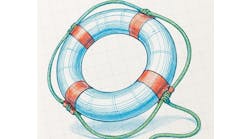Who Is Robert X. Cringely? And why should automation professionals care?
From his bio on http://www.pbs.org/cringely/about/:
For eight years from 1987-95, Robert X. Cringely wrote the Notes From the Field column in InfoWorld, a weekly computer trade newspaper. He is also the author of the best-selling book Accidental Empires: How the Boys of Silicon Valley Make Their Millions, Battle Foreign Competition, and Still Can't Get a Date.Most recently, Cringely is the host and writer of the hit PBS-TV miniseries "Electric Money." (If you'd like to own "Electric Money," you can.) Cringely's work has appeared in The New York Times, Newsweek, Forbes, Upside, Success, Worth, and many other magazines and newspapers.The sex symbol, airplane enthusiast and adventurer continues to write about personal computers and has an active consulting business in Silicon Valley, selling his cybersoul to the highest bidder.On Why You Should Pay Any Attention to Him
When it comes to information technology, I know what I am talking about. Thirty years in and around the PC business have earned me wisdom, if not wealth. It's not that I am so smart, but that my friends are smart. The best and brightest in Silicon Valley talk to me all the time. It's my job to sift through their thoughts for valuable bits to share with you. But wait, if I am so great, why is this service free? Good question! Maybe it's time to renegotiate my contract with PBS.
So what has Cringley done that should bring him to the attention of automation professionals everywhere?
Once again, he's blogged about RoHS, and the problems created by trying to find a workaround for leaded solder.
"Costs have gone up," he says, "mean time between failures (MTBF) has gone down (accelerated MTBF tests, which are the only MTBF tests we do anymore, don't reliably pick this up, by the way), and reliability has suffered. Since we don't fix things anymore, it’s hard to say whether your gizmo failed because of bad solder or not, but the problem is becoming worse as a greater percentage of total circuits in use have lead-free solder. The military was especially concerned, even before the whisker crisis."
Read the entire story "Leadfoot: sometimes going green hurts more than it helps" here.
Latest from Home
Latest from Home



